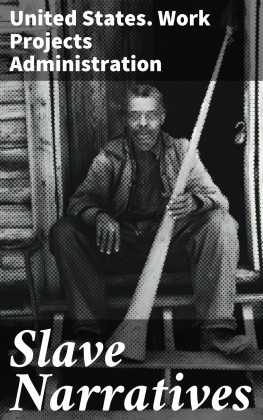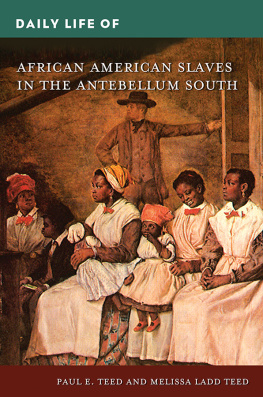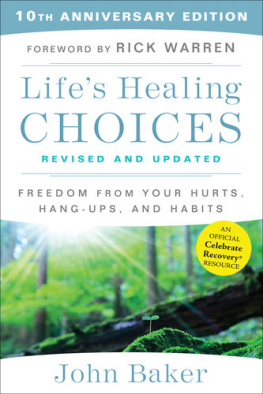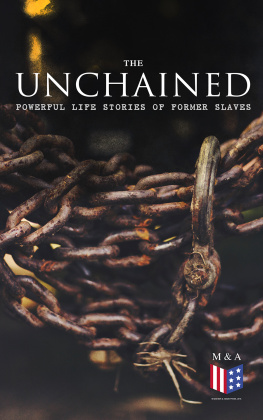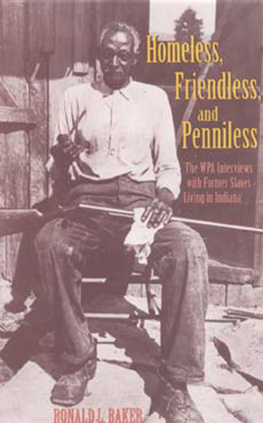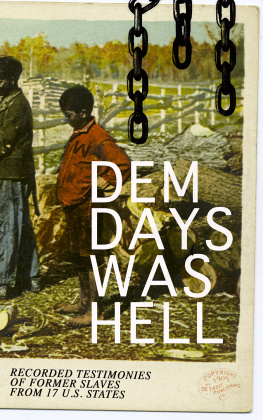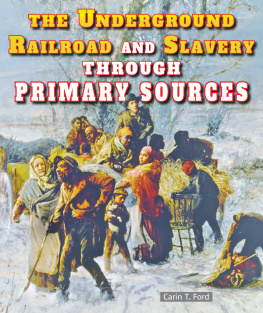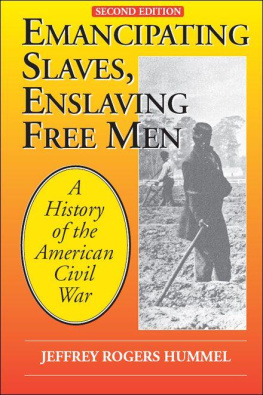Mrs. Octavia V. R. Albert.

Bibliographical Note
This Dover edition, first published in 2005, is a newly reset, unabridged republication of the work originally published by Hunt & Eaton, New York, and Cranston & Stowe, Cincinnati, in 1890 under the title The House of Bondage, or Charlotte Brooks and Other Slaves.
Library of Congress Cataloging-in-Publication Data
Albert, Octavia V. Rogers (Octavia Victoria Rogers), 18531889?
[House of bondage, or, Charlotte Brooks and other slaves]
American slaves tell their stories : six interviews / Octavia V. Rogers
Albert; introduction by Willard F. Mallalieu.
p. cm.
Originally published: The house of bondage, or, Charlotte Brooks and other slaves. New York: Hunt & Eaton, 1890.
9780486145396
1. SlavesSouthern StatesInterviews. 2. Women slavesSouthern StatesInterviews. 3. SlavesSouthern StatesSocial conditions19th century. I. Title.
E444.A33 2005
306.3092275dc22
2004061895
Manufactured in the United States of America
Dover Publications, Inc., 31 East 2nd Street, Mineola, N.Y. 11501
PREFACE
T HE following pages, giving the result of conversations and other information gathered, digested, and written by Mrs. Octavia V. Rogers, deceased wife of the Rev. A. E. P. Albert, A.M., D.D., first appeared in the columns of the South-western Christian Advocate, some months after her death, as a serial story, under the name of The House of Bondage. It was received with such enthusiasm and appreciation that no sooner was the story concluded than letters poured in upon the editor from all directions, urging him to put it in book form, so as to preserve it as a memorial of the author, as well as for its intrinsic value as a history of negro slavery in the Southern States, of its overthrow, and of the mighty and far-reaching results derived therefrom.
No special literary merit is claimed for the work. No special effort was made in that direction; but as a panoramic exhibition of slave-life, emancipation, and the subsequent results, the story herein given, with all the facts brought out, as each one speaks for himself and in his own way, is most interesting and life-like.
The conversations herein given are not imaginary, but actual, and given as they actually occurred. No one can read these pages without realizing the fact that truth is often stranger than fiction. As such we present it to the public as an unpretentious contribution to an epoch in American history that will more and more rivet the attention of the civilized world as the years roll around.
An only daughter unites with the writer in sending out these pages penned by a precious and devoted mother and wife, whose angelic spirit is constantly seen herein, and whose subtle and holy influence seems to continue to guide and protect both in the path over which they since have had to travel without the presence and cheer of her inspiring countenance.
To her sacred memory these pages, the result of her efforts, are affectionately inscribed.
A. E. P. ALBERT
LAURA T. F. ALBERT
EDITORIAL ROOMS
South-western Christian Advocate,
NEW ORLEANS, LA., November 15, 1890.
INTRODUCTION
T HE story of slavery never has been and never will be fully told. In the last letter that John Wesley ever wrote, addressed to Wilberforce, the great abolitionist, and dated February 24, 1791, and this only six days before his tireless hand was quieted in death, he wrote these words: I see not how you can go through your glorious enterprise in opposing that execrable villainy (slavery and the slave-trade), which is the scandal of religion, of England, and of human nature. Unless God has raised you up for this very thing you will be worn out by the opposition of men and devils; but if God be for you who can be against you? Are all of them together stronger than God? O, be not weary in well doing. Go on in the name of God and the power of his might till even American slavery, the vilest that ever saw the sun, shall vanish away before it.
It is because American slavery was the vilest that ever saw the sun that it is and will remain forever impossible to adequately portray its unspeakable horrors, its heartbreaking sorrows, its fathomless miseries of hopeless grief, its intolerable shames, and its heaven-defying and outrageous brutalities.
But while it remains true that the story can never be completely told, it is wise and well that the task should be attempted and in part performed; and this for the reason that there are some who presume that this slavery, the vilest that ever saw the sun, has been, and is still, of divine appointment; in short, that from first to last it was a divine institution. It is well to remind all such people that the Almighty Ruler of the universe is not an accessory, either before or after the fact, to such crimes as were involved in slavery. Let no guilty man, let no descendant of such man, attempt to excuse the sin and shame of slave-holding on the ground of its providential character. The truth is that slavery is the product of human greed and lust and oppression, and not of Gods ordering.
Then it is well to write about slavery that the American people may know from what depths of disgrace and infamy they rose when, guided by the hand of God, they broke every yoke and let the oppressed go free. Finally, it is well to tell, though only in part, the story of slavery so that every man, woman, and child of the once enslaved race may know the exceeding mercy of God that has delivered them from the hopeless and helpless despair that might have been their portion if the Lord God Omnipotent had not come forth to smite in divine and righteous wrath the proud oppressor and bring his long-suffering people out of their worse than Egyptian bondage.
This volume, penned by a hand that now rests in the quiet of the tomb, is a contribution to the sum total of the story that can never be entirely told.
In her young girlhood the author had known the accursed system, and she knew the joy of deliverance. With a deep, pathetic tenderness she loved her race; she would gladly have died for their enlightenment and salvation. But she has gone to her reward, leaving behind her the precious legacy of a sweet Christian influence that can only flow forth from a pure and consecrated life.
May this volume go forth to cheer and comfort and inspire to high and holy deeds all who shall read its pages!
WILLARD F. MALLALIEU
BOSTON, MASS., Nov . 15, 1890.
THE AUTHOR
T HE author of this volume, Octavia Victoria Rogers, wife of the Rev. A. E. P. Albert, D.D., was born in Oglethorpe, Macon County, Ga., of slave parentage, December 24, 1853, and was educated at Atlanta University, in that State. She and Dr. Albert first met at Montezuma, Ga., where they taught school together, in 1873; and on October 21, 1874, they were united in holy wedlock. They had an only daughter, who survives her mother. She united with the African Methodist Episcopal Church under the preaching of Bishop H. M. Turner, at Oglethorpe, Ga., and was converted and united with the Methodist Episcopal Church, under the pastorate of the Rev. Marcus Dole, at Union Chapel, New Orleans, in 1875. Her own husband baptized her at Houma, La., in 1878, during the first year of his ministry. She was an angel of mercy whose loving spirit will long be cherished by all who knew her but to love her. Now she rests from her labors, and her good works do follow her. Peace to her precious memory!


